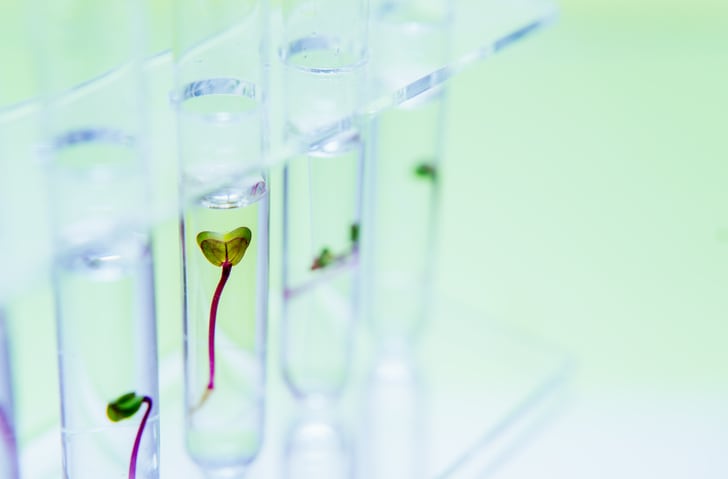Representative material for sampling has been made available to a selection of DSM customers, with a full-scale commercial production and launch anticipated for early 2023. Through unlocking nature’s inherent qualities, DSM’s vice president of biosciences and process innovation Ronald Gebhard said the company was “radically transforming how vitamins are made”.
Leveraging eco-friendly ingredients
The move is in line with DSM’s vision to make its products carbon neutral by 2050.
Speaking to CosmeticsDesign-Europe, Parand Salmassinia, vice president of personal care and Aaoma at DSM, said: “Eco responsibility is becoming a huge movement in the beauty and personal care industry. By developing a nature-inspired process based on renewable raw materials, we reduce waste and greenhouse gas emissions, making a considerable step towards the NetZero50 ambitions of DSM and our customers.”
Joerg von-Allmen, vice president of vitamins category management at DSM, added: “Until now, the only way to meet the growing demand for vitamin A has been to build new multi-step chemical production facilities requiring more finite resources. DSM’s new bio-based process will significantly reduce the carbon footprint and waste of vitamin A manufacturing while still producing the top-quality customers expect.”
von-Allmen continued: “We expect this breakthrough to trigger all vitamin A manufacturers worldwide to reconsider how they will invest to accelerate the transition to a healthier future for people and the planet away from the traditional chemical processes that are based on finite resources.”
Bio-based vitamin A production
DSM is said to have refined the potential scalability of vitamin A production through a global approach across six of its facilities including US, the Netherlands, Germany and Switzerland which have been working together to turn early lab work into a high-tech biotech, scalable process.
It was the company’s research and development labs in Lexington, Massachusetts, US, which discovered a specifically-developed strain of yeast could convert a renewable carbon source into vitamin A. The yeast is genetically optimised to make the product at high purity but is removed from the final product.
“The biotech approach has emerged as the most promising, building on DSM competencies in advanced biotech and isolation and purification of vitamin A,” Gebhard told CosmeticsDesign-Europe. “The moment we were able to isolate vitamin A out of the bio-broth, with a purity profile similar to the current product, we realised we had something revolutionary at hand.”
“Our new, fully bio-based process relies on commonly available renewable raw materials and results in a lower carbon footprint and less waste while still delivering the industry-beating quality expected of DSM,” he added.
Popularity of Vitamin A
Vitamin A – often referred to as retinol – is recognised for its immune and digestive health benefits. A prominent ingredient in skin care products, it is used for its anti-ageing compounds in treatments to reduce the appearance of fine lines, wrinkles and blemishes, and increase collagen production.
DSM hopes the innovation will offer more brands, particularly those in facial skincare, the opportunity to provide consumers with more choice. “Retinol, specifically, enjoys high awareness among consumers thanks to its trusted image and superior efficacy and we expect a rise of retinol-based products,” said Salmassinia.
A scientific discovery in 1947 at Swiss health and vitamins company Hoffmann-La Roche, which was acquired by DSM in 2003, led to the manufacture of commercial vitamin A production. DSM produces vitamin A at a facility in Sisseln, Switzerland, from where it is distributed globally to the cosmetics and personal care sectors.
“Vitamin A is one of the most in-demand and trusted cosmetic ingredients on the market and we will now be able to offer an alternative with significant environmental advantages,” said Salmassinia. “Our innovation will help DSM’s customers lead their product categories in sustainability, offering a considerable contribution to their climate change actions and net-zero goals.”



